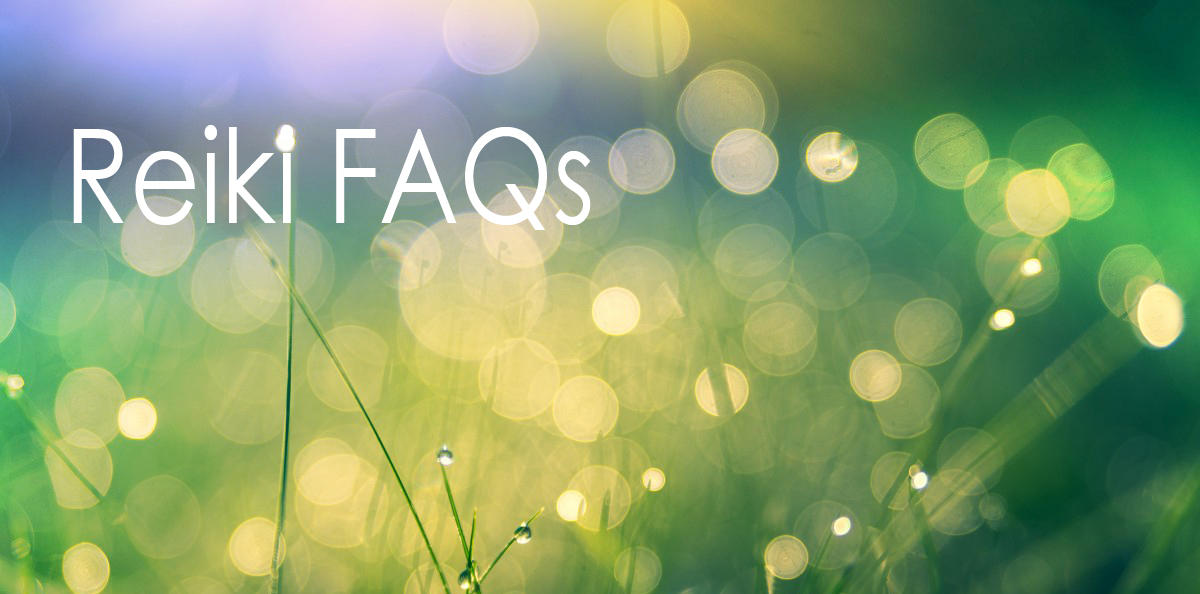While Reiki is beginning to be a bit more mainstream, it continues to be surrounded by a certain level of mystique, misconception, and even myth. Let’s unpack some of the most frequently asked questions about Reiki.
1. What is Reiki?
Reiki (pronounced “ray – key”) is a healing technique developed in the early 1900’s by Mikao Usui in Japan. It is an art-form that is passed from Master to student. The word Reiki comes from two Japanese words, Rei & Ki, meaning universal life force energy. Reiki practitioners interact with this life force energy to bring balance, relaxation, and well-being to clients.
All physical matter, including living things, is bound by energy – specifically by light energy! According to Dr. Doug Corrigan, light is the “glue that holds all things together.” If you’re curious about the intersection of spirituality and science, check out Dr. Corrigan’s book, The Author of Light.
If all of us, including animals, are literally made of light, doesn’t it make sense that we can use light energy to bring homeostasis back to the body? Simply put, a Reiki practitioner connects to universal life force energy, and shares its healing properties with their client.
2. Is Reiki a religion?
While Reiki is certainly a spiritual practice, it isn’t connected with any specific religion. Reiki practitioners come from various faiths, and some practitioners would say that they aren’t religious at all. There are no Reiki churches, Reiki pastors, Reiki sermons, or Reiki masses. Reiki practitioners are independent thinkers who hold their own individual beliefs and theories about the mysteries of the universe. What practitioners share in common, however, is a commitment to 5 guiding principles:
Just for Today…
I will let go of anger
I will let go of worry
I will honor my parents, teachers and elders
I will do my work honestly
I will show gratitude to every living thing
3. Can Reiki cure my _________?
Reiki is not a cure-all for anything. Instead, Reiki helps to facilitate relaxation, which in turn promotes a mind-body state that is more conducive to healing.
When people are stressed (because of physical injury, illness, or environmental triggers), they produce cortisol – the “fight-or-flight” hormone. High cortisol levels can reduce the immune system’s efficiency and make it much more difficult to heal from acute or chronic issues. This is where Reiki comes in!
Through relaxation, any stagnant or negative energy—such as stress, anxiety, physical pain, sadness, confusion, etc.—can loosen its grip, allowing the body to begin the healing process.
4. Is Reiki just a new-age pseudo-science?
Scientific minds sometimes have a hard time with anything that isn’t tangible and measurable. However, when it comes to Reiki, we don’t have to suspend our critical thinking and just believe in it.
Firstly, Reiki isn’t “new-age” at all. Its history goes back to the 1900’s, and this is just the point at which Reiki was given a name and became a technique that was actively taught in modern times. Energy healing techniques go back even further in history, and have been embraced by many different peoples and cultures throughout time. With slight variations, and undeniable similarities to Reiki, these techniques may be as old as humanity itself.
Secondly, despite the fact that there is generally not a lot of research funding available for things that can’t be patented, there are some scientific studies that suggest Reiki is helpful for patients with various health concerns. Click here to see just a few highlights. Additionally, Reiki is becoming more and more accepted in the Allopathic medical community. Several hospitals across Canada offer Reiki services to patients, and over 60 teaching hospitals across the US (including Yale New Haven Hospital, Johns Hopkins, and M.D. Anderson Cancer Center) have adopted the Reiki in Hospitals program.
“The energy of the mind is the essence of life.”
~Aristotle
If you would like to give Reiki a try, book an appointment today!


Leave a Reply